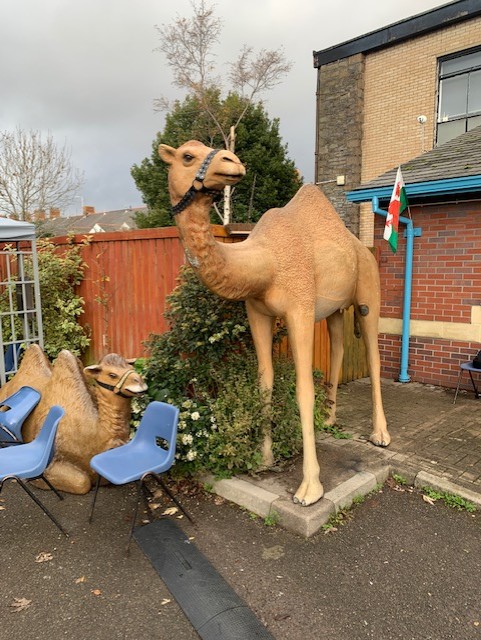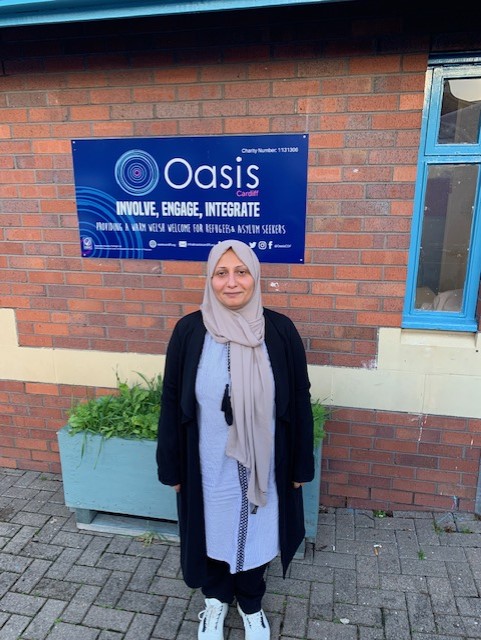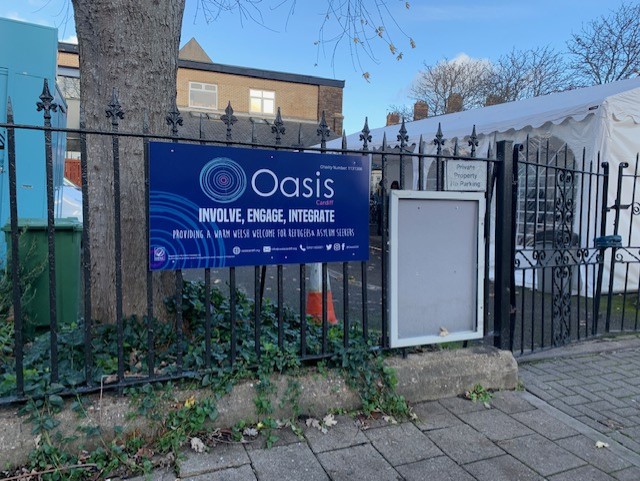Oasis Cardiff has gone from strength to strength since its humble beginnings in 2008
WHEN Oasis Cardiff began in 2008 it was just three volunteers in a small church room. Fast forward nearly 15 years and Oasis has one of the biggest refugee and asylum seeker support centres in the UK with 320 volunteers working for them.
The centre on Splott Road is open every weekday and serves free lunch to its visitors as well as putting on a range of activities that help integrate people from around the world into the community.
“Oasis was established in 2008 by Reynette Roberts MBE. It started very simply as a place where people just off City Road could be fed and as a place where people could socialise,” said Norman Gettings, who is communications and resettlement lead at Oasis.
“Since then it’s grown to become Wales’ biggest refugee and asylum seeker charity. We have visitors from 40 different countries on our database. Unfortunately, we have people coming from all over the world now.
“We probably have about 150 people coming in for lunch and or advice each day.”

The centre offers people the chance to adapt to life in Cardiff while giving them a safe space to relax and bond with one another. Oasis has a team on hand to integrate visitors into the community as well as they can.
“It’s a social space but it’s also a place where people can come and talk to our integration staff,” explained Mr Gettings.
“They key thing we offer each day are English lessons. Monday is women only but on the other four days of the week we have drop-in classes for people. We run four classes a day between drop-in classes here and an online class in the afternoon.
“We also offer a social space where people can drink tea or coffee and talk with their friends. It’s a welcoming space and they can play pool or table tennis. We also offer digital literacy classes with the computers we have.
“We offer a warm Welsh welcome to asylum seekers and refugees. That basically sums up what we do. We don’t turn anyone away, we don’t make any judgements and we understand that people have gone through a lot of stress, strain and trauma to arrive at this position in their lives.”

With around 150 people visiting Oasis each day, volunteers work round the clock to ensure everything is going to plan. One of these volunteers is Sahar Ali. She came to Oasis as an asylum seeker after fleeing Iraq now works as a volunteer.
“First of all, I heard about Oasis from my son, he told me that the Home Office said they are helping asylum seekers and refugees,” said Ms Ali.
“We came here and Oasis offered me this opportunity for me and my daughter.
“Back in my country of Iraq I was teaching in the University of Technology in Baghdad, and I have volunteered here for three and a half years after getting my status as a refugee.
“I do three days a week here and two days a week in a dental lab with my husband as he’s a dental technician.”

In total there are well over 300 volunteers working for Oasis.
“We have volunteers in the kitchen, volunteer drivers, we have volunteers who come in and teach English,” said Mr Gettings.
“On our volunteer database we have 320 volunteers. Some we may not see for several months, others come in twice a week to man reception, or sit on the phones or help our integration team.”
Stuart Winstanley is another dedicated volunteer who works at Oasis, unlike Sahar who has come from afar, Mt Winstanley is from the South Wales Valleys, just a short drive up the A470.
“My role is as a triage volunteer, part of the integration team two days a week. The reason for volunteering is that I have done this type of work for many years, and I wanted to come back to carry on doing similar work,” he explained.
“As an English-speaking Valleys boy, mixing with people from all over the world gives me a sense of fulfilment and it’s a humbling experience. I’m doing what I can to make a difference.
“For a centre like this to be based in Splott, one of Cardiff’s oldest, working-class communities is great because it crosses boundaries, real or perceived. That can only help.”



